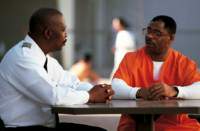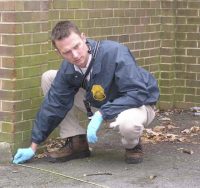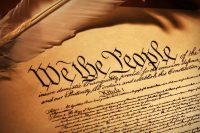A coroner is an individual who directs activities such as autopsies, pathological and toxicological analyses, and inquests relating to the investigation of deaths occurring within a legal jurisdiction to determine cause of death or to fix responsibility for accidental, violent, or unexplained deaths. Coroners are often the person that makes the decision to initiate an investigation if they determine the cause of death to be questionable. There are some areas that allow coroners the authorization to issue a subpoena and (…)
Cyber law
Cyber law otherwise known as “internet law” is the area of law that regulates how people use the internet. There are cyber laws that are criminal laws and there are cyber laws that are civil laws. Any law or regulation that involves how people use computers, smartphones, the internet and other related technology is cyber law. Cyber law is also called digital law. As technology changes, the laws that govern electronic communication change, too. Cyber law encompasses all of the (…)
What is a Criminologist?
Criminologists use social patterns, statistics, and psychology in order to analyze the behaviors of criminals and methods used by criminals in order to help predict and prevent criminal behavior from occurring in the future. Psychological profiling plays an important role in the profession as well. In addition, a criminologist will evaluate how different methods of law enforcement affect crime rates. A criminologist will use their education in federal, state, and local law enforcement agencies or work as college professors. In (…)
Internet Law
The internet has created a whole new area of the law because of the unique way it is structured. There are many judicial concerns when it comes to use of the internet. The internet is not bound by geography and for this reason national laws cannot be applied. This area of the law is still being researched and more fully developed. Internet law refers to how legal principles and legislation govern the use of the internet in all its forms. (…)
Native American Law
Native American law is the collection of laws, administrative rules and other authorities that impact Native American populations and their relationship to the United States and state governments. Native American law defines the relationships between Native American tribes and other governments. It also encompasses the self-government of Native American tribes. Achievements in Native American law There are several purposes to Native American law. The laws seek to allow Native Americans to self-govern in an effective and fair way. The laws (…)
Contract Law
Contract law is the body of law that relates to making and enforcing agreements. A contract is an agreement that a party can turn to a court to enforce. Contract law is the area of law that governs making contracts, carrying them out and fashioning a fair remedy when there’s a breach. Anyone who conducts business uses contract law. Both companies and consumers use contracts when they buy and sell goods, when they license products or activities, for employment agreements, (…)
Immigration Customs Agent
The United States Immigration and Customs Enforcement Agency is a part of the Department of Homeland Security. An immigration customs agent has the responsibility of enforcing customs laws and immigration laws in the United States. According to the Immigration and Customs Enforcement Agency (ICE.gov), a number of different job opportunities are available: Deportation Officer One position with ICE is as a deportation officer. Deportation officers’ conduct the research that is necessary to support decisions that are made in exclusion/deportation cases and help (…)
Penologists
Penology, a sub type of sociology, is the study of management of prisons and jails and of rehabilitating convicts. Penologists are sociologists who spend most of their time working inside prisons with prisoners. In addition, penologists will aid prison security by helping to prevent disturbances such as escapes, assaults, and other antisocial behavior that can result in disruptions. Local, state, and federal prisons all employ penologists. A penologist can find a job in both low security and maximum security environments. (…)
Insurance Law
Insurance law is the collection of laws and regulations that relate to insurance. Insurance is a contract between two parties. It transfers the risk of loss to the other party to the contract in exchange for a fee called a premium. Insurance laws and regulations manage and control how insurance contracts are formed and enforced. Insurance laws manage the offering, buying, selling and claims processes for insurance in the United States. In the United States alone, insurance is a trillion dollar (…)
Securities / Capital Markets Law
Securities law (or Capital Markets law) is the group of laws and regulations that govern the issuance of securities. A security is a financial instrument usually designed to raise money for a business from investors in the business. Securities law dictates what a corporation has to do in order to offer their investment to the public. The laws exist in order to make sure that public investments are fair to everyone who might invest in the company. What is a (…)
Labor Law
Labor laws are the laws that govern the relationships between employers and employees when employees unionize. Labor laws regulate whether employees can join together to negotiate employment terms collectively. When laws allow collective bargaining, they determine the obligations and rights of the employer and employees. Where do labor laws come from? Lawmakers pass labor laws with the goal of making the employer-employee relationship fair to everyone involved. Proponents believe that workers have an unfair bargaining position compared to the resources and (…)
How to Become a Crime Scene Investigator
What is a Crime Scene Investigator? The Crime Scene Investigator (CSI) collects and preserves a variety of evidence from an active crime scene. The crime scene investigator is most often a law enforcement professional responsible for the identification, collection, preservation, and cataloging of physical evidence at the crime scene. What Does a Crime Scene Investigator Do? Although many people assume that the crime scene investigator is responsible for the performance of tests of various types of physical evidence, forensic professionals (…)
How to Become a Paralegal
A paralegal is a person who performs legal work. They assist an attorney with the attorney’s duties. Most of the time, they have formal legal training. They’re not a licensed attorney, and they can’t appear in court. However, they can assist an attorney with many of their duties. A lawyer can use a paralegal’s work as their own. A paralegal performs many of the functions of a lawyer in order to make the attorney’s work more manageable. They also handle (…)
Property Law
Property law is the area of law that governs what people own. It’s the area of law that says who can own land and personal items, how they can use them and with what conditions. Property law applies to both real property and personal property. Ownership and use of property is an area of law that impacts everyone in society. Property law is also an important part of estate law, family law and municipal law. Property law is the area of law that (…)
Constitutional Law
Constitutional law is the law that relates to interpreting, implementing and amending the United States constitution and the constitutions of the 50 states. It is an area of law that focuses on what the constitution says, what it means and what its limitations are. As social and political issues change and develop in the United States, attorneys who practice constitutional law bring these issues to the courts to ask for clarification about the meaning, interpretation and enforcement of the constitution. (…)
Appellate Law Practice
A trial isn’t always the end of the case. One or both parties may want to appeal part or all of the trial verdict. In addition, they may want to appeal certain aspects of the lower court’s proceedings that they believe may have led the jury or the court to make the wrong decision. The process of asking a higher court to review a decision made by a lower court or an administrative agency is called an appeal. Attorneys who (…)
Derivatives and Futures Law
Derivatives and futures law is the collection of laws that regulate trading in derivatives and futures. Derivatives and futures law involves regulations. It also involves compliance. Practicing derivatives and futures law requires identifying applicable laws and regulations, creating a compliance plan and helping clients negotiate business transactions. Attorneys in the area of law may also help their clients defend against enforcement actions. What are futures and derivatives? A derivative or future is a financial contract where the value of the (…)
Bankruptcy Law
Bankruptcy laws focus on helping individuals solve and repay their debts after they have suffered heavy losses. In the United States there were bankruptcy laws as early as 1800. However, the first voluntary bankruptcy laws were allowed through the Acts of 1841 and in 1867. These laws along with the Bankruptcy Act in 1898 also called the Nelson Act are what our modern debtor/creditor relation system are based on. It is common to hear that a person in a bad (…)
Law Clerk
A law clerk will help lawyers and judges in law firms, courts, and other types of legal settings. In order to become a law clerk there is some training required. The legal field is extremely complex and changes consistently. In order to keep up with these changes a team of legal professionals is necessary. According to the Bureau of Labor Statistics (BLS), there were 41,550 law clerks employed throughout the United States. Job Description of a Law Clerk A law (…)
Juvenile Law
Juvenile law is the unique body of law that relates to minors. To put it another way, juvenile law is the law that applies specifically to juveniles. Although the juvenile criminal court is likely the most known example of juvenile law, there are many cases where the law treats a minor differently than an adult. While many constitutional rights are the same for both minors and adults like the right to the representation of an attorney in a criminal matter and the right to (…)




















